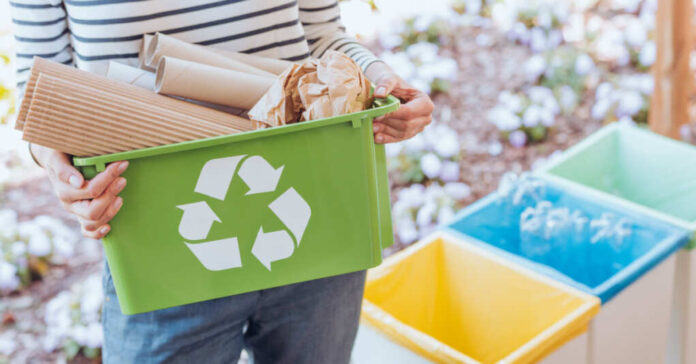
Imagine a world where waste products simply disappear without causing harm to natural resources or polluting ecosystems, where energy costs are kept under control and valuable resources don’t go to waste – this is the vision that recycling presents. Recycling has become increasingly crucial now more than ever especially amidst rising concerns about climate change and the dwindling availability of space in landfill sites. In this article, we will discuss why recycling is pivotal for our environment, highlighting its benefits and potential consequences without sustainable actions.
1. Recycling Reduces Municipal Solid Waste (MSW)
When waste is diverted from landfill disposal to be reused, it contributes significantly to reducing MSW. Landfills often utilize non-renewable energy sources during their operation which leads to greenhouse gas emissions, contributing to global warming and its multifarious consequences. By diverting your waste materials into recycle bins, you can potentially decrease demand at local MSW management facilities while keeping them open longer.
2. Conserving the Energy Crisis
The process behind most major manufacturing industries typically involves large amounts of energy usage. When waste plastic, aluminum, glass, and paper etc materials are transformed back into raw materials for new production, they help reduce the amount of energy required to create new products since the initial fabrication phase has occurred. Thus, recycling not only slows down the depletion of energy reserves but also minimizes emission arising from extracting and processing virgin materials such as water, air, and soil pollution.
3. Preventing Overflow and Pollution in Landfill Sites
Overflowing garbage dumps cause untold damage to both the ecosystem and public health due to leachate leakage – liquid waste present in refuse. Landfill runoff often contains high levels of harmful chemicals, including cancer-causing agents, heavy metals, and other dangerous substances. These elements find their way into ecosystems through the groundwater supply and air emissions. However, recycling initiatives substantially reduce landfill requirements by turning waste material into usable products; this dramatically diminishes both the creation of leachate and environmental impact.
4. Preservation of Fragile Resources
Materials such as wood, paper, aluminum, glass, and plastics can take centuries or even millennia to break down, while others, like nuclear waste, last virtually forever. As their production process requires significant amounts of energy, raw materials are rapidly being exploited depleting limited stores available with detrimental effects on our Earth’s limited resource pool. Therefore, preserving these resources by recycling is quintessential for a sustainable future where extraction activities could be slowed or halted entirely.
5. Emission Reductions Leading to Respiratory Health Improvements
Mitigating methane gas production resulting from biodegradable waste by practicing sustainable waste practices like recycling helps achieve better air quality and improvement in lung function over long periods. Apart from reducing carbon footprint by preventing methane output, this indirect relationship can result in a lower rate of respiratory diseases due to cleaner air caused partly due to recycling efforts. Also, producing goods from recycled materials generally requires less energy compared to creating them from newly extracted raw materials.
6. Encouragement of Economic Growth and Employment Opportunities
Reprocessing materials for reuse typically create additional jobs in logistics, shifting labor from one industry to another. In some developed regions, advanced forms of recycling can lead to the development of new recycled-only product industries. Creating additional economic opportunity from recypling waste stream makes the business case for waste reduction even stronger. This ensures the circular economy can continue improving and fostering further sustainable business growth.
In conclusion, recycling offers a plethora of environmental and socioeconomic advantages to our planet earth, including protection against scarcity of natural resources, decreasing landfill volumes, and resulting health hazards. While the road to a sustainable future may seem daunting, each day, our collective individual responsibility toward recycling brings us closer to reaching a future that benefits every living being. Thus, inculcating recycling habits should begin at home and extend into education institutions, corporations, and governing bodies if we aim to stave off dire climatic occurrences.
Remember to always put trash in its respective recycling bin to support our ever-vital mission of making the world a safer, cleaner, and sustainable place for generations to follow. Every effort counts!
